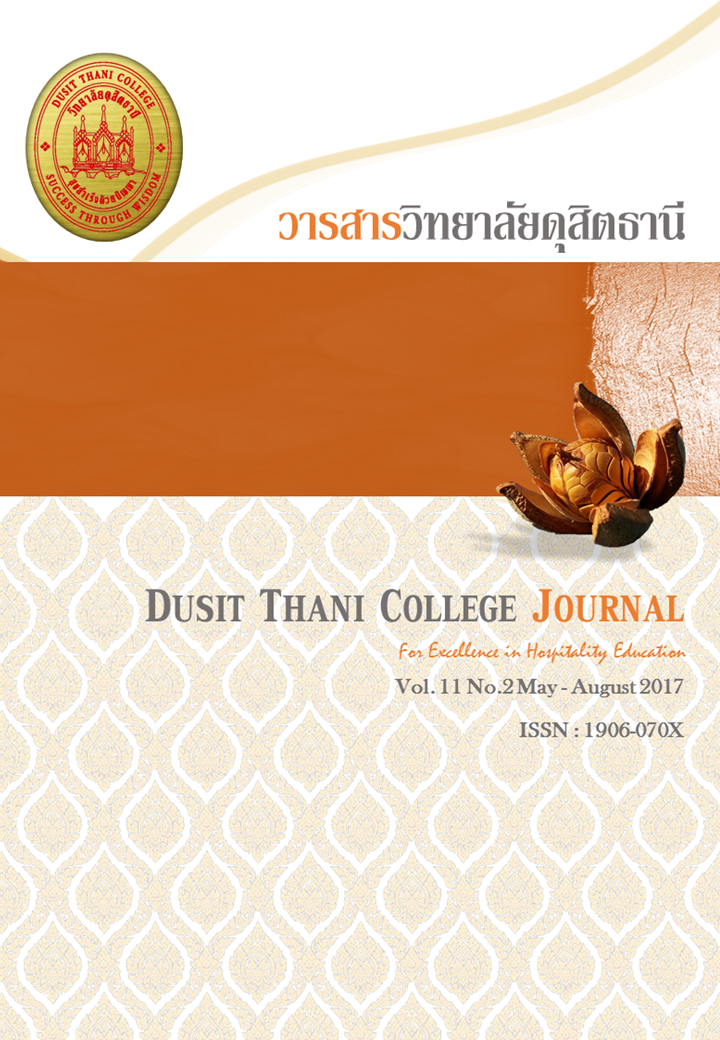Success Factors Effecting the Administrative Quality of Demonstration Secondary Schools in Public Universities
Main Article Content
Abstract
The purposes of the present study were to 1) study success factors effecting the administrative quality of demonstration secondary schools in public universities, 2) study the effects of success factors which influenced the administrative quality of demonstration secondary schools in public universities and the empirical data, and 3) establish the prototype of the success factors of the administrative quality of demonstration secondary schools in public universities. This study adopted mixed-method research design, the qualitative method and the quantitative method. The sample group included 708 administrators, teachers, and guardians from demonstration secondary schools in public universities which derived from using a multi-stage random sampling. The research instruments used for collecting data were five Likert-scale questionnaires which had a reliability that ranged between 0.896 and 0.958 The obtained data was analyzed using descriptive analysis, t-test, confirmatory factor analysis, and path analysis.
The research results were summarized as follows: 1) There were four success factors for the quality of school administration for each factor as follows: (1) Having a professional administrator, (2) Having participation from all parties, (3) Administrators with vision, and (4) Having good administrative systems. 2) Two success factors which had a direct influence on the quality of school administration were found, namely having professional administrators and having good administrative systems. Three factors were found to have an indirect influence, namely having participation from all parties, administrators having vision, and having good administrative systems. and 3) The results of the prototype fit developed by the researcher was correlated with the empirical data (Chi-Square= 127.42, df= 91, p= 0.07, GFI= 0.980, AGFI= 0.966, RMSEA= 0.024, CN= 696.176)
Article Details
Article Screening Policy
- All research and academic articles to be published must be considered and screened by three peer reviews in the relevant field / article.
- All articles, texts, illustrations and tables published in the journal are the personal opinions of the authors. Editors don't always have to agree. And no responsibility whatsoever is the sole responsibility of the author.
- The articles to be published must never be published. Where did you first publish? And not in the consideration of other journals If the audit found that there has been a duplicate publication It is the sole responsibility of the author.
- Any article that the reader sees as being plagiarized or impersonated without reference. Or mislead the work of the author Please let the journal editor know it will be your greatest blessing.
References
California Council. (2008). Closing the Achievement Gap. Sacramento: California
Department of Education.
Carroll, A.B. & Buchholtz, A.K. (2003). Business and Society: Ethics and Stakeholder Management, 5th ed. Mason: Western.
Chalapirom, Bancha. (2010). An Analysis of Factors Affecting the Effectiveness of The Demonstration Schools. (Doctoral dissertation Chulalongkorn University).
Cohen, J.M. & Uphoff, N.T. (1980). Participation’ Place in Rural Development: Seeking
Clarity Through Specificity, World Development, (8): 223-227.
Daniel, D.R. (1961). Management information crisis. Harvard Business Review, (Sept-
Oct, 1961): 111-116.
Earley, P. & Weindling, D. (2004). Understanding School Leadership. London: Paul Chapman.
Franse, Lucille M. (1998). An Exploratory Study of the Relationship between Texas
Administrators Reception of TQM Principle and Continuous Improvement in
Students TASS Test Scores (Total Quality Management). Retrieved January 28, 2015, from Thailis. Uni.Net.Th/dao/detail. Nap.
Kroeksukonwanich, Wittaya. (2014). Systematic Monitoring Process for Policy Implementation of Secondary School. (Doctoral dissertation Silpakorn University).
Jaidee, Kamomthip. (2014). A Causal Relationship Model of the Element Influencing the Performance to Excellence in Private School. Ph.D. in Social Sciences Journal. 4(1), Jan-Apr 2014: 1-15.
Johnson, J. A., & Friesen, M. 1995. The Success Paradigm: Creating Organizational Effectiveness Through Quality and Strategy. New York: Quorum Books.
Leithwood, K., Louis, K. S., Anderson, S., & Wahlstrom, K. (2004). How Leadership Effectss Student Learning. New York: The Wallace Foundation.
Nanus, B. (1992). Visionary Leadership: Creating a Compelling Sense of Direction for
Your Organization. San Francisco, CA: Jossey-Bass.
Nation Association of Laboratory schools. (2007). What are the Function of Laboratory School. Retrieved March 17, 2016, from https://www.edinbora. edu/cwis/educationals.him
Pantuves, Choatchuang. (2008). Qualitative Education Administration Model: SIPPO MODEL. Bangkok: Keawchaojom Publications & Media Center, Suan Sunandha Rajahat University
Phillips, Nicola. I. (1997). Management: A Pragmatic Guide to New Techningues. London: Pitman.
Rungsuwan, Napharuk. (2014). An Analysis of Management Factors Affecting the Effectiveness of Demonstration School in The Office of Higher Education Commission in Bangkok. Journal of Education Thaksin University. 14(2). July 2014: 230-255.
Russell, R.F. (2001). The Role of Values in Servant Leadership. Leadership & Organization Development Journal, 22(2): 76-83.
Sa-nguannam, Jantanee. (2008). Theories and Practices in Educational Administration. 2ndEd. Bangkok: Bookpoint.
Sirisukchaiwut, Natakamonwan. (2009). Factors Affecting the Quality of the Internal Quality Assurance System of Standard Basic Schools in Lower Northern Region. Bangkok : Cambridge Education.
Stuart, K. Robin & Rick. (1999). Success Guide to Managerial Achievement. Virginia: A Prentice-Hall.
Thongsawas, Sudaporn. & Jornjit, Sujitta. (2013). Factors Influencing The Effectiveness of Management Education Institution : Thailand Development Research. Proceeding of the 4th Hatyai Conference, Surattanee : Hatyai University. 291-300.
Wannasri, Jitima. (2007). The Creative Thinking Development Model of Basic Educational Institute Principals. (Doctoral dissertation, Naresuan University).


